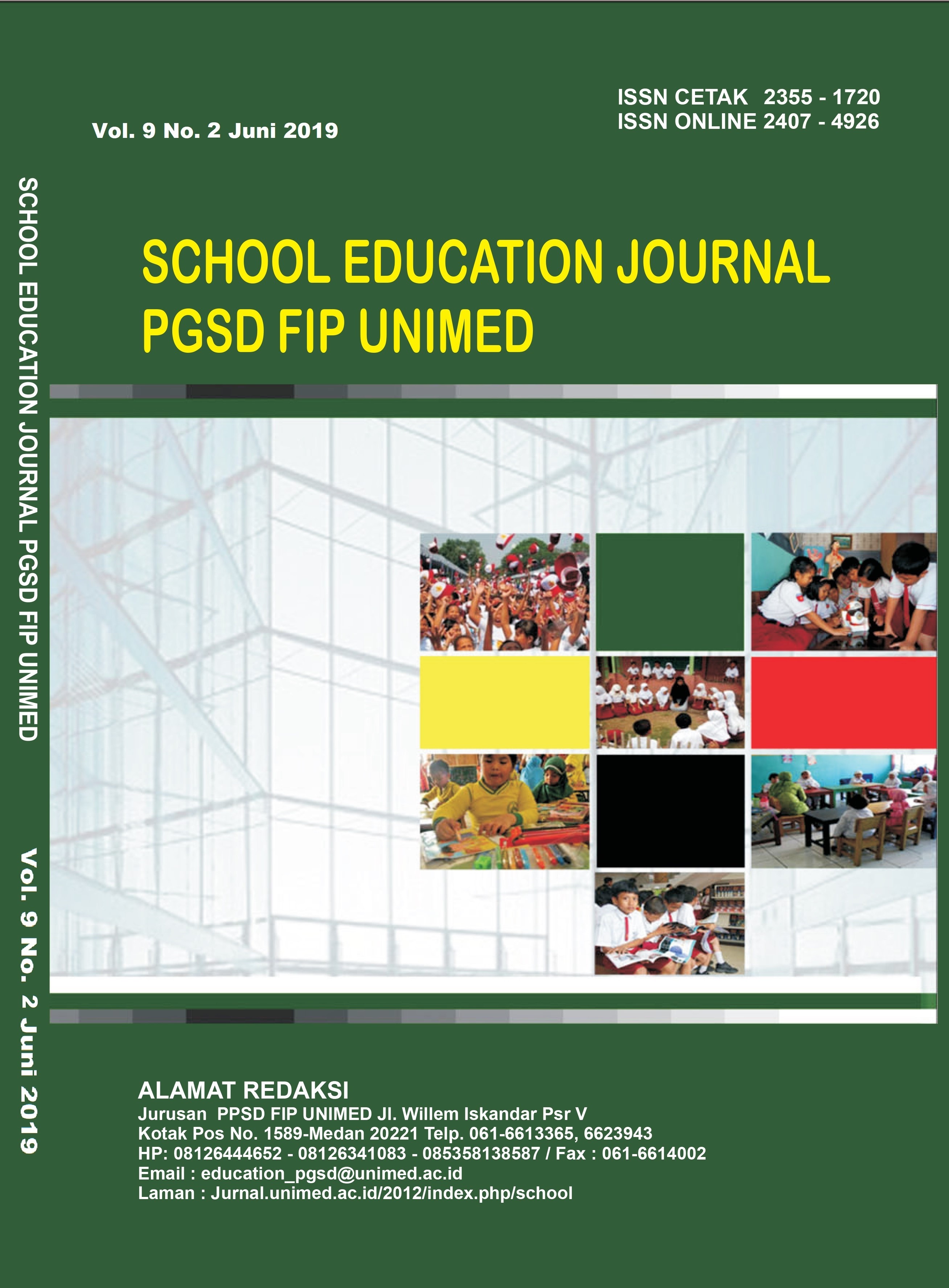UPAYA MENINGKATKAN HASIL BELAJAR IPA MENGGUNAKAN PEMBELAJARAN KOOPERATIF TIPE JIGSAW SISWA KELAS IV SDN 163088 KOTA TEBING TINGGI
DOI:
https://doi.org/10.24114/sejpgsd.v9i2.13709Abstract
The purpose of the study was to improve student learning outcomes in the material structure and function of plant parts of class IV 163088 Public Elementary School Jalan Nangka Tebing city using Jigsaw cooperative learning type. The subjects of this study were fourth grade students of SDN 163088 in Tebing Tinggi city, totaling 22 students. This study uses qualitative descriptive analysis techniques. Data analysis was collected through tests. Science using Jigsaw type cooperative learning can improve learning outcomes of class IV students at SD Negeri 163088 Tebingtinggi. This can be seen from the results of the tests obtained during the pre-cycle where the average score of the acquisition of students was 62.5 with classical completeness of 40.9%. After carrying out the first cycle and carried out the test at the end of the first cycle, there was an increase in students' understanding with the student average score of 74.3 and the classical completeness value of 72.7%. the test results obtained in the second cycle the average value of students is 80.22 with class completeness of 90.90%, hence this research is said to be successful. Keywords: learning outcomes, plant structure, JigsawDownloads
Published
Issue
Section
License
Authors whose manuscripts are approved are approved as follows:
The publication rights for all journal manuscript materials published/published on the SEJ (School Education Journal) E-Journal site are held by the editorial board with the author's knowledge (moral rights remain with the manuscript authors).
The formal legal requirements for accessing this electronic digital journal article are subject to the terms of the Creative Commons Attribution-ShareAlike (CC BY) license, which means that E-Journal SEJ (School Education Journal) has the right to store, transfer media/format, manage in the form of a database, maintain, and publish articles without asking permission from the author as long as the author's name remains as the copyright owner.
Manuscripts published/published electronically are open access for educational, research, and library purposes.

